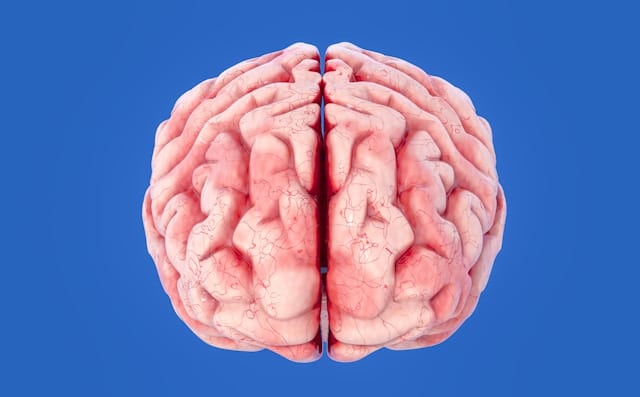Cortisol is having a moment. But what’s the real story? Yale psychiatrist Dr. Elizabeth Goldfarb shares when cortisol can be helpful versus hurtful, plus strategies to reduce stress in everyday life.
The internet is brimming with content about cortisol. A quick Google search will yield practices to lower your cortisol levels, juice cleanses that claim to regulate cortisol in the body, and people sharing signs of “cortisol face” or “cortisol stomach” — a term used across social media that embodies the belief that stress alone can cause certain puffy features.
Influencers across social media are quick to list a variety of health concerns from ache breakouts to sleep troubles to weight gain and recommend to their followers: “Go get your cortisol levels checked!”
People across social media comment that they wonder if they need a “cortisol detox.” Hold the phone: Does anyone know what this really means?
While cortisol is a key stress hormone in our lives and has been well researched, sometimes this information comes from corners of the internet and social media where there is little scientific research backing this free “advice.”
Dr. Elizabeth Goldfarb, assistant professor of psychiatry and psychology at Yale University, joined Being Patient to demystify cortisol and present findings from her latest research with colleagues at Yale.
The dual nature of cortisol
Often dubbed the “stress hormone,” cortisol plays a complex role in our brain health. While it’s typically associated with negative effects like anxiety and sleep disturbances, recent research shows that cortisol can also enhance memory under certain conditions.
According to Goldfarb, understanding this dual nature is crucial, especially as we seek strategies to maintain cognitive health throughout life. She emphasized that cortisol isn’t inherently detrimental: “I like to think of [cortisol] as a tuning knob that turns up certain types of memories and might turn down other ones,” she told Being Patient.
In situations like taking an exam, a moderate level of stress — and consequently, cortisol — can actually enhance memory formation.
Still, too much stress can impair a person’s ability to recall information. How do you get it just right? Timing is also critical, Goldfarb explained: Cortisol levels take about 10 minutes to rise after a stressor, influencing how people process and store memories.
Cortisol’s pathway to the brain
Your pituitary gland, a small gland located at the base of the brain, sends a signal to your adrenal glands to produce cortisol in various amounts throughout the day. “What’s interesting about cortisol is that even though it’s released [in the adrenals], it can cross what’s called the blood-brain barrier and actually go up into your brain,” Goldfarb said.
Once released, it can cross the blood-brain barrier and bind to receptors in key brain regions like the hippocampus and amygdala, which are integral to memory and emotional processing.
Cortisol plays an important role throughout our day as well.
“We definitely need cortisol, and [our cortisol levels] change throughout the day. Cortisol levels are higher when you’re waking up in the morning. They help you wake up, and then they go down over the course of the day as you’re getting ready for bed,” Goldfarb said.
Chronic stress and cognitive decline
Stress holds a double-edged sword of being helpful — and even necessary — in our daily lives, but too much stress can have long-term effects like increased risk of cognitive decline.
“One thing you often hear about in stress research is the ‘Inverted U.’ If there’s not enough stress, a person is not going to perform as well,” Goldfarb said. “[With everyone] there’s going to be that sweet spot [of stress] where learning and performance are enhanced. Then, obviously, once stress gets too high, you see an inability to focus, and a total breakdown of function.”
While acute stress can sometimes sharpen our mental faculties, chronic stress poses a risk to brain health. One study found that middle-aged adults with elevated cortisol levels exhibited smaller brain volumes and performed worse on memory tests compared to those with lower levels. This suggests that prolonged exposure to high cortisol can lead to structural and functional brain changes.
Further research indicates that chronic stress may deplete our cognitive reserve—the brain’s resilience to damage. High cortisol levels can diminish this reserve, making individuals more susceptible to cognitive decline and dementia.
Cortisol and alcohol
Another way that cortisol can be released? Consuming alcohol.
Goldfarb’s research has also explored addiction and alcohol use. “Cortisol is not just a stress hormone; it’s also a response that can happen when you have a glass of wine,” she said.
This response suggests that alcohol consumption can trigger a stress-like hormonal reaction, potentially influencing how we encode memories associated with drinking experiences. Goldfarb is still trying to uncover how impacts on our memory might contribute to patterns of repeated alcohol use.
“One idea we had was, well, maybe it’s a stress response to alcohol that’s making you remember this experience in a different way, so that you’re going to drink again later. What we found was that if you give people cortisol in a pill form, it does make their memories for emotionally-salient alcohol, like alcoholic beverages that they crave, [stronger],” Goldfarb said.
Certain regions of the brain, like the hippocampus, are more sensitive to high levels of alcohol. Moreover, chronic alcohol consumption and binge drinking has been linked to sustained elevated cortisol levels.
Strategies for managing cortisol levels
Studies show physical movement offers numerous emotional regulation and mental health benefits — including positive impacts on cortisol: Engaging in regular physical activity has been shown to lower cortisol responses and benefit brain regions like the hippocampus. But what kind of physical activity? Research shows that movement doesn’t always have to be vigorous or intense to benefit a person’s health, as long as it’s regular — think a walk around the house every couple hours, rather than an intensive workout every couple days.
Some research shows that yoga practice doesn’t typically involve enough physical movement to really get the blood flowing, oxygenate the brain, and bring all the benefits of physical activity that regulate cortisol, not to mention offset the risks of harmful chronic diseases later in life. But other research has found that it still has benefits: Researcher Neha Gothe, kinesiology and community health professor at the University of Illinois, found that yoga appeared to increase the volume of the hippocampus and benefit the amygdala. In previous research, Gothe found that people who did yoga for eight weeks had a lower cortisol response to stress.
Mindfulness practices, including meditation, can also help regulate cortisol levels. Traditional Chinese Medicine expert Mao Shing Ni notes that stress increases cortisol while decreasing beneficial neurochemicals like serotonin and dopamine. Incorporating meditation into daily routines can mitigate these effects.




